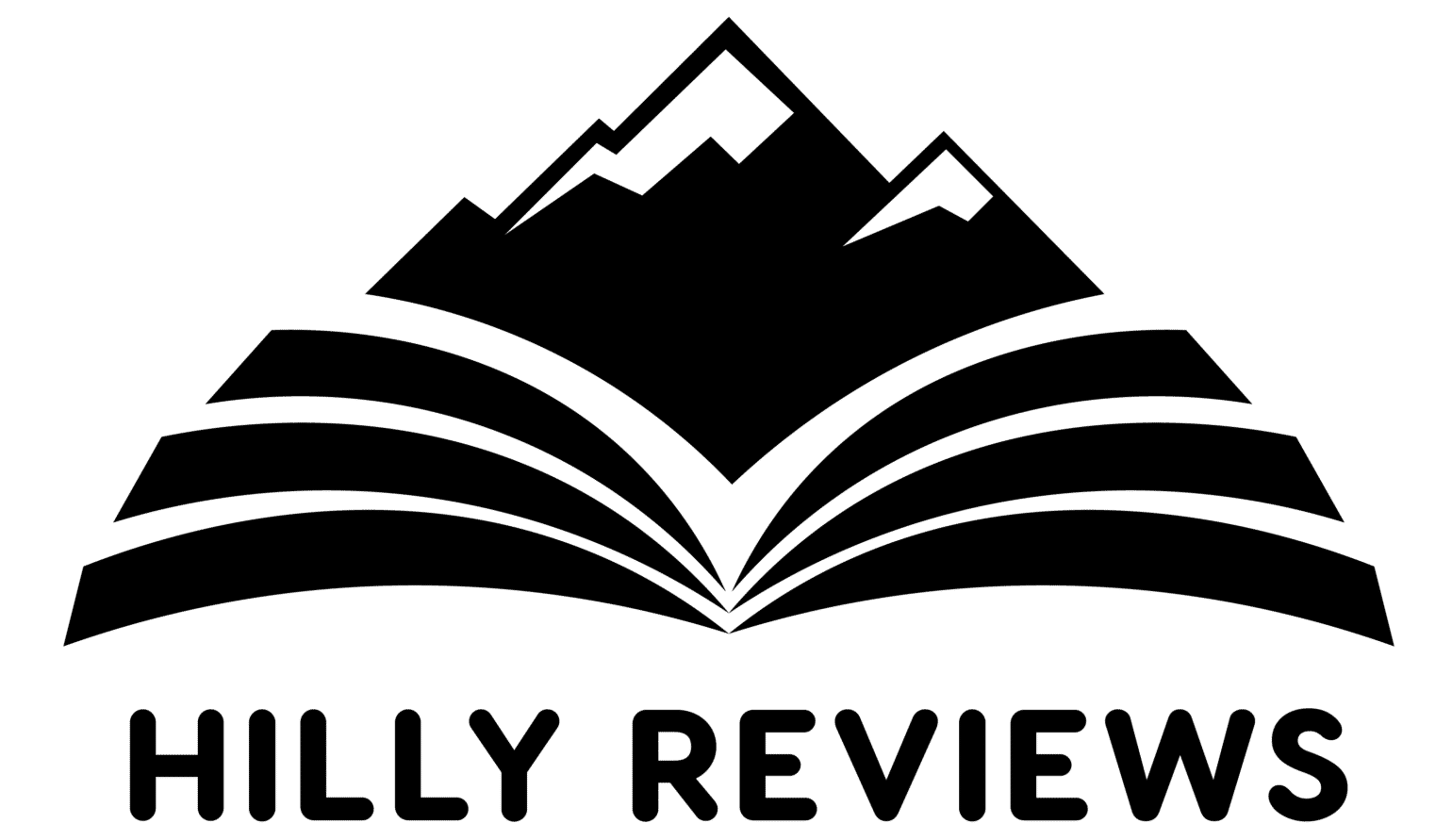Contents:
Introduction: Why Financial Literacy Is Key to a Secure Financial Future
Did you know that nearly 73% of Indians lack confidence in managing their personal finances? This highlights a growing concern—financial literacy is the compass that guides you through the turbulent waters of personal finance. Without it, making informed choices about savings, investments, or debt management becomes a guessing game. Whether it’s understanding compound interest or avoiding unnecessary debt, being financially literate ensures you’re prepared to handle life’s financial surprises, from everyday expenses to major events like medical emergencies.
In today’s fast-paced world, financial literacy is more than just a skill—it’s a necessity. It gives you the power to manage your money wisely, plan for long-term goals like retirement savings, and stay afloat amidst financial challenges. From tax planning to effective money management, mastering key financial concepts sets you on the path to a successful financial future.
Our previous guide on Really Simple and Powerful Personal Finance Strategies for Wealth Creation introduced straightforward yet impactful concepts. This guide offers valuable insights for everyone, from complete beginners to those with prior knowledge. This guide introduces new concepts while avoiding repetition of the topics already discussed. You can refer to the previous guide if you need more foundational knowledge. If any section seems too basic, feel free to skip it. Dive in and enhance your financial literacy!

Moving Beyond Basic Financial Concepts
Really Simple and Powerful Personal Finance Strategies for Wealth Creation provides a solid foundation on basic financial concepts like saving and budgeting. But to achieve financial stability, it’s crucial to delve deeper. Financial literacy means going beyond these basics to understand more advanced strategies like debt management, compound interest, and tax planning to ensure overall financial security and stability.
For example, a person might know how to open a bank account, but do they know how to evaluate different financial products for better interest rates and lower fees? Becoming financially literate means mastering these key financial concepts to make better choices in the long run.

Zero-Based Budgeting: Making Every Rupee Count
Budgeting is like drawing a map for your money. But sometimes, traditional budgeting leaves you with more questions than answers. Enter zero-based budgeting, where every rupee is accounted for. This method forces you to assign every rupee a job, helping you track your spending more precisely.
Example: Zero-Based Budgeting in Action
Let’s say you earn ₹50,000 per month. Here’s how zero-based budgeting might look:
| Income | Amount (₹) | Purpose |
|---|---|---|
| ₹50,000 | ₹15,000 | Rent/EMI |
| ₹5,000 | Savings | |
| ₹3,000 | Utilities | |
| ₹7,000 | Groceries | |
| ₹2,000 | Emergency Fund | |
| ₹18,000 | Other Expenses (e.g., entertainment, transportation) |
Pros and Cons of Zero-Based Budgeting
| Pros | Cons |
|---|---|
| Helps track every rupee | Requires effort to maintain |
| Promotes accountability | May be too rigid for some |
| Reduces chances of too much debt | Takes time to set up |
By sticking to a zero-based budget, you gain better control over your personal finances, reducing the risk of unnecessary debt while making every rupee work for you.
Cash Flow Forecasting: Staying Ahead of Financial Surprises
Life is full of surprises—some pleasant, some not. Cash flow forecasting helps you prepare for the unexpected, ensuring that you’re never caught off guard. This practice involves predicting your future income and expenses, allowing you to plan for both the best and worst-case scenarios.
Example: Forecasting for Upcoming Expenses
Let’s say you need to pay an insurance premium of ₹30,000 in six months. Rather than scrambling for funds at the last minute, cash flow forecasting allows you to set aside ₹5,000 each month.
| Month | Projected Income (₹) | Projected Expenses (₹) | Savings (₹) for Insurance |
|---|---|---|---|
| January | ₹50,000 | ₹45,000 | ₹5,000 |
| February | ₹50,000 | ₹45,000 | ₹5,000 |
| March | ₹50,000 | ₹45,000 | ₹5,000 |
Planning ahead like this eliminates financial stress and ensures that you’re prepared for whatever life throws at you.
Sinking Funds: Smart Saving for Big Goals
A sinking fund is like a secret stash for your future big-ticket purchases. It’s a savings strategy that helps you plan for large expenses without breaking the bank or relying on credit.
For example, if you plan to buy a laptop that costs ₹80,000, you can set up a sinking fund by saving ₹10,000 per month for eight months. This way, you’ll be able to purchase without dipping into your emergency savings or taking on credit card debt.
Benefits of Sinking Funds
- Helps plan for future expenses
- Avoids reliance on loans
- Reduces financial stress
Debt Consolidation: Simplifying Your Financial Life
Debt consolidation is like rolling all your debts into one neat package. Imagine you’ve got three different loans—one for a car, one from a personal loan, and some credit card debt. Each month, you’re juggling multiple due dates, interest rates, and payments. With debt consolidation, you take a new loan to pay off those old ones. Now, instead of managing multiple bills, you’re left with a single payment, often at a lower interest rate. It’s like streamlining your personal finances for financial stability.
However, debt consolidation doesn’t come without its pitfalls. While you’ll likely have lower monthly payments, the extended loan term could mean you pay more in total interest over time. That’s why it’s crucial to have financial literacy to understand the long-term impact on your financial future. It can be a smart step toward financial stability if done right, helping you avoid too much debt and financial stress.
Example: Consolidating Multiple Loans
Consider the following example where an individual has:
- A personal loan of ₹1,00,000 at 14% interest
- A credit card debt of ₹50,000 at 22% interest
- A car loan of ₹2,00,000 at 12% interest
To consolidate loans, follow these steps:
- Assess current debts: This includes a personal loan of ₹1,00,000 at 14% interest, a credit card debt of ₹50,000 at 22% interest, and a car loan.
- Research consolidation options: Look for financial institutions that offer loan consolidation services.
- Compare interest rates: Evaluate the interest rates offered for consolidation to ensure they are lower than the current rates.
- Calculate potential savings: Determine how much could be saved in interest by consolidating the loans.
- Apply for consolidation: Once a suitable option is found, complete the application process for loan consolidation.
- Use the funds to pay off existing debts: If approved, the consolidation loan should be used to pay off the personal loan, credit card debt, and car loan.
- Create a repayment plan: Establish a budget and repayment schedule for the new consolidated loan to ensure timely payments.
Refinancing: Lowering Interest Rates to Save Money
Refinancing can be a lifesaver if you’re paying high interest on loans. Taking out a new loan at a lower interest rate can reduce your monthly payments and save big in the long run.
For example, if you have a home loan of ₹20 lakh at 9% interest, refinancing to a loan with 7% interest could save you thousands over the course of the loan.
The Snowball vs. Avalanche Methods: Which Debt Repayment Strategy Works Best?
When it comes to paying off debt, two popular strategies often come into play: the snowball method and the avalanche method.
- Snowball Method: Pay off your smallest debts first. This gives you quick wins and boosts motivation.
- Avalanche Method: Focus on paying off your highest-interest debts first. This saves you more money in the long run.
Which is Right for You?
| Method | Pros | Cons |
|---|---|---|
| Snowball | Quick psychological wins | It takes longer to see results |
| Avalanche | Saves money on interest | It takes longer to see the results |
Both methods have their merits, so choose the one that best fits your situation.
Maintaining a Strong Credit Score: Your Financial Reputation
Your credit score is your financial report card. A high score opens doors to better loan offers and lower interest rates, while a low score can severely limit your options. To maintain a good score, always pay your bills on time, keep your credit utilization low, and avoid applying for too much credit at once.

| CIBIL Score Range | Impact |
|---|---|
| 750-900 | Excellent: Low risk; high likelihood of loan approval and best interest rates. |
| 650-749 | Good: Lower risk; better chances of loan approval with favourable terms. |
| 550-649 | Fair: Moderate risk; may get loans but with higher interest rates. |
| 300-549 | Poor: High risk; likely to face loan rejections or higher interest rates. |
Keeping your credit scores high ensures that you have the financial flexibility you need for the future.
Compound Interest: The Eighth Wonder of the World
Albert Einstein once remarked, “Compound interest is the eighth wonder of the world. He who understands it earns it; he who doesn’t pays it.” This powerful concept enables your money to grow exponentially, as it accumulates interest not only on the principal but also on the interest previously earned.

For example, if you invest ₹1,00,000 at 8% annual interest, by the end of the first year, you’ll have ₹1,08,000. In the second year, you’ll earn interest on ₹1,08,000, not just the original ₹1,00,000. Over time, this snowball effect can significantly boost your wealth. Here’s a look at how compound interest works over five years:
| Year | Principal (₹) | Interest (₹) | Total (₹) |
|---|---|---|---|
| 1 | ₹1,00,000 | ₹8,000 | ₹1,08,000 |
| 5 | ₹1,00,000 | ₹46,933 | ₹1,46,933 |
| 10 | ₹1,00,000 | ₹1,15,892 | ₹2,15,892 |
Starting early maximizes the benefits of compound interest, making it an essential tool for long-term financial planning.
Retirement Planning: Building a Nest Egg for Your Future
Planning for retirement is like planting a tree—the earlier you start, the better. In India, schemes like EPF, PPF, and NPS offer excellent opportunities to save for retirement while enjoying tax benefits.
| Scheme | Return Rate | Tax Benefit |
|---|---|---|
| EPF | 8.5% | Tax-free |
| PPF | 7.1% | Tax-free |
| NPS | 8-10% | Tax deductions under Section 80C (under old regime of IT) |
These options ensure that you have a secure financial future when you decide to hang up your boots.
Tax Planning: The Art of Maximizing Returns
Tax planning remains a key pillar of financial strategy, especially after the 2024 Union Budget updates. Under the old tax regime, taxpayers can still leverage popular Section 80C instruments like ELSS, PPF, and NPS to reduce taxable income while simultaneously building wealth. The Public Provident Fund (PPF), for instance, offers a guaranteed return of 7.9%, and by investing ₹1.5 lakh annually, you can save up to ₹45,000 in taxes depending on your tax bracket, while earning tax-free interest. This is particularly useful for those who seek risk-averse options with tax benefits.
For those considering Equity Linked Savings Schemes (ELSS) or National Pension System (NPS), the benefits have been enhanced. While NPS now offers an additional deduction of ₹50,000 under Section 80CCD(1B), making it a must-consider option for retirement planning, ELSS provides a higher potential for returns with a short 3-year lock-in. Both options allow for substantial tax savings under Section 80C, but come with different risk profiles—ELSS being equity-linked and market-dependent, while NPS focuses on long-term retirement savings with a mix of equity and debt.
Tax Planning Example
| Scheme | Annual Investment (₹) | Tax Savings (₹) |
|---|---|---|
| PPF | ₹1,50,000 | ₹45,000 |
| ELSS | ₹1,50,000 | ₹45,000 |
| NPS | ₹1,50,000 | ₹45,000 |
Smart tax planning helps you save more and grow your wealth faster.
Behavioural Finance: Managing Emotions for Better Financial Decisions
We often make financial decisions based on emotions—whether it’s splurging on a sale or investing based on a hot tip. Behavioural finance teaches us how our emotions influence our financial choices and helps us develop good financial habits. By automating savings and setting spending limits, you can reduce the risk of impulsive decisions that hurt your long-term financial health.

Avoiding Lifestyle Inflation: Keeping Your Spending in Check
As your income increases, it’s easy to start spending more. This is called lifestyle inflation, and if left unchecked, it can prevent you from reaching your financial goals. Instead of upgrading your lifestyle with every pay raise, focus on increasing your savings or investments. This ensures that you continue to work toward financial independence.
Estate Planning: Protecting Your Family’s Future
Estate planning is often overlooked, but it’s a crucial part of financial literacy. Having a will or trust ensures that your assets are distributed according to your wishes, protecting your family’s financial future.
The Power of Financial Education: Promoting Financial Literacy for All
Financial literacy education is key to promoting financial literacy across all age groups. Whether it’s students learning about personal finances or adults managing credit card debt, ongoing education ensures that people can navigate the complexities of today’s financial world.

Key Takeaways: Mastering Financial Literacy for a Secure Future
- Financial literacy is important for achieving long-term financial security. It empowers you to make informed financial decisions and avoid financial illiteracy.
- Zero-based budgeting helps you allocate every rupee effectively, improving your money management skills and avoiding too much debt.
- Cash flow forecasting prepares you for unexpected expenses and ensures smoother financial planning.
- Sinking funds allow you to save for large purchases without relying on loans or credit card debt, promoting better money management.
- Debt consolidation simplifies your financial life by merging multiple loans into one, often at a lower interest rate, making it easier to manage debt.
- Refinancing can significantly lower your interest rates, saving money on large debts like home loans and reducing financial stress.
- The snowball and avalanche methods are two effective ways to pay off debt, with the snowball method offering quick wins and the avalanche method saving more on interest.
- Maintaining a high credit score is crucial for accessing better loan offers and interest rates, contributing to your financial well-being.
- Compound interest is a powerful tool for wealth accumulation. The earlier you start, the more significant your gains.
- Retirement planning through schemes like EPF, PPF, and NPS ensures a secure future with tax benefits.
- Smart tax planning can help you reduce your taxable income while growing your wealth, boosting your financial security.
- Behavioral finance helps you manage emotional influences on your financial decisions, leading to better financial habits.
- Avoid lifestyle inflation by directing additional income toward savings and investments, helping you stay on track with your financial goals.
- Estate planning ensures your assets are passed on according to your wishes, protecting your family’s financial future.
- Ongoing financial literacy education is essential for promoting financial literacy across all age groups, enabling everyone to navigate the complexities of personal finance effectively.
By embracing these strategies, you can become more financially literate and build a successful financial future free from financial stress.
Conclusion: Financial Literacy Is Your Key to Financial Independence
Achieving financial freedom is not just about making more money; it’s about being financially literate. By understanding financial concepts, managing debt, investing wisely, and planning for the future, you can secure a life free from financial stress. Start today, and remember—every step you take brings you closer to a financially independent future!
FAQs
-
What does it mean to be financially literate?
Being financially literate means having the knowledge and understanding of basic financial concepts like budgeting, saving, investing, and managing debt. It’s about making informed financial decisions to achieve financial stability and long-term financial security.
-
Why is financial literacy important?
Financial literacy is important because it equips individuals with the skills to manage their personal finances effectively. This includes understanding how to handle bank accounts, avoiding credit card debt, and planning for retirement savings. Without financial knowledge, people are more likely to face financial stress and make poor financial decisions.
-
What are the basic financial concepts everyone should know?
Some of the basic financial concepts include:
Budgeting: Planning how to spend your income.
Saving: Setting aside money for future needs.
1Investing: Using money to earn returns.
Debt management: Learning to manage and pay off loans responsibly. -
How can I improve my money management skills?
Improving your money management skills involves setting clear financial goals, tracking your spending, and creating a budget. Tools like zero-based budgeting and apps that track spending can help you develop better habits and ensure every rupee is accounted for.
-
How does financial education benefit students?
Students’ financial literacy is essential, as it prepares them for the challenges of handling personal finances when they start earning. Understanding financial literacy skills early helps in avoiding student loan debt, managing personal finance education, and building habits that lead to a successful financial future.
-
What is the role of financial institutions in promoting financial literacy?
Financial institutions play a significant role in promoting financial literacy by offering tools and resources for managing bank accounts, loans, and investments. They also provide education on topics like compound interest, tax planning, and financial products to help individuals make better financial decisions.
-
How can compound interest help me grow my wealth?
Compound interest allows you to earn interest not only on your initial investment but also on the interest earned over time. The earlier you start investing, the more you benefit from this “snowball effect,” helping you secure your financial future.
-
What is the difference between saving and investing?
Saving money involves putting aside funds for short-term goals or emergencies, typically in low-risk options like a savings account. Investing involves using your money to generate returns, often through financial products like stocks, mutual funds, or real estate, which carry more risk but offer higher potential rewards over the long term.
-
How does financial planning contribute to financial well-being?
Financial planning helps in setting long-term financial goals and creating a roadmap to achieve them. It encompasses retirement planning, tax planning, and ensuring you have an emergency fund for unexpected expenses, all of which contribute to overall financial well-being.
-
How does tax planning help maximize my returns?
Tax planning involves strategically investing in tax-saving instruments like PPF or ELSS to reduce your taxable income. This not only helps you save money but also ensures that you are growing your wealth in a tax-efficient way.
-
What is debt management, and why is it crucial?
Debt management refers to the process of handling debts in a way that avoids financial strain. Managing debt effectively means paying off high-interest debts first, using methods like the snowball or avalanche strategies, and consolidating loans to lower interest rates. This is essential for avoiding too much debt and achieving financial stability.
-
How can I protect myself from financial illiteracy?
To avoid financial illiteracy, make it a priority to learn about personal finance, stay updated on financial topics, and understand key financial concepts like budgeting, investing, and managing debt. Continuous financial literacy education will help you make better financial decisions.
-
What are some good financial habits to develop?
Some of the good financial habits include:
1. Creating and sticking to a budget.
2. Saving a portion of your income regularly.
3. Paying off debt systematically.
4. Planning for taxes in advance.
5. Regularly reviewing and updating your financial plan. -
What is a credit score, and why is it important?
A credit score is a numerical representation of your creditworthiness. It impacts your ability to borrow money at favourable interest rates and access premium financial products. Maintaining a high credit score requires timely payments and keeping your credit utilization low.
-
How can I avoid financial stress?
To avoid financial stress, prioritize creating a financial safety net, like an emergency fund. Regularly review your budget, manage debt effectively, and ensure you are saving for future goals, such as retirement savings, to give yourself peace of mind.
-
How do I start planning for retirement?
Start retirement planning by determining your future financial needs and investing in long-term schemes like EPF, PPF, and NPS. Make use of compound interest and tax planning to maximize your retirement savings while ensuring financial security in your golden years.
-
How do interest rates affect my financial decisions?
Interest rates directly impact loans, savings, and investments. Higher interest rates can make borrowing expensive but can also boost returns on savings accounts. When making financial decisions, it’s essential to consider how interest rates influence both your debt and savings plans.
-
How does financial literacy affect spending habits?
Financially literate people tend to have better control over their spending habits. They understand the importance of budgeting, avoiding unnecessary debt, and making informed choices when it comes to purchases, helping them achieve financial independence.
-
How does understanding credit affect financial behaviour?
Understanding how credit scores and credit work influence responsible financial behaviour. Financially literate individuals know how to maintain low credit utilization, pay off debts on time, and avoid accumulating high credit card debt.
-
How can personal finance education promote long-term financial stability?
Personal finance education equips individuals with the knowledge to make better financial decisions, effectively manage debt, and plan for future financial goals. A solid foundation in financial literacy leads to a more secure and successful financial future.




Compound interest being the eighth wonder, huh? Gotta tell my bank that, cause they’re acting like it’s a myth when it comes to my savings account. 😆
You’re not alone! Finding a good interest rate feels like hunting for unicorns these days!
so, after all this reading, the secret is just to earn more than you spend, right? Seems like a lot of fancy words for simple logic 🙄
The discussion on behavioural finance is pertinent. Understanding our emotional responses to money can fundamentally change our financial behaviors for the better.
I tried that forecasting thing and it never works out. Unexpected expenses come up all the time. feels like a waste of time.
on this debt consolidation section, does it make sense for a small biz like mine or is it more for personal debts? kinda confused.
Debt consolidation can be beneficial for both personal and business debts, depending on your specific circumstances. It often simplifies payments and can reduce interest costs.
Vishal, your segment on maintaining a strong credit score was enlightening. It’s crucial yet often overlooked. Glad you highlighted its importance in securing financial independence.
Everyone’s all about saving and budgeting, but what about investments in crypto? Feels like this needs a mention too, given its potential for high returns.
Reading about the Snowball vs Avalanche method and all I can think about is how my finances are more like an out of control snowboarder. 😂 Any tips for that, Vishal?
This part about sinking funds is something new for me. looks like a good way to save up for those big family expenses without feeling the pressure all at once.
Hey Vishal, I found the section on Zero-Based Budgeting really interesting. Just wondering how it compares to the traditional budgeting methods? Is it better for someone who’s just starting to manage their finances?
Just jumping in here, I think zero-based is great cause it makes you justify every expense, much better for getting your spending in check!
I’ve tried both, and honestly, it’s more about what fits your style. Some find traditional easier to stick to.
Absolutely incredible!
Very practical approch
Thank you🙏
Thank you 🙏Papa Jee
Great work from a technocrat and bureaucrat
Thank you, Nalin Jee 🙏🏻